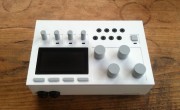When it comes to music education, a plethora of game-like approaches have been created for years, to help ease students into the work required to understand music theory and get accustomed to solfège. What can be difficult, is finding a game that manages to instill knowledge, as well as cover the many areas of music theory and adjust for increasing levels of proficiency. The Theta Music Trainer manages to hit all of these marks and has the added benefit of worldwide connection because the trainer exists online. Starting January 10, for 24 hours, Theta’s quest to teach music theory will become an international competition -its third annual- open to anyone with an internet connection and a desire to up their theory skills!
Anyone who wants to can sign up to participate in the music theory competition held through the website. It will begin on January 10, at promptly 11:00AM local Japan time (that’s 10:00PM/22:00 January 9 EST) and run until the following day at the same respective hours. Three games will be selected out of the many available for play/study. Scoring will be determined for each competitor via a cumulative figure from all three games. Prizes are simple, ranging from $10 to $30 dollar gift card increments for the top five achievers.
A company based out of Tokyo, Japan, the Theta Music Trainer has been active since 2010 and is intended as a multi-faceted resource for students to use in order to hone their understanding of musical relationships (e.g. intervals, chords, progressions,) and aural familiarity (e.g. ear training, scale replication, melody recognition.) This worldwide event may not offer the biggest monetary incentive but as a global promotional tool both for itself as a company and as a motivator for music theory practice, the “Winter Games” is an easy and recognizable format for young students to embrace while they learn fundamentals.
Games on the site and structure for progress outside of this special event cover a wide array of topics:
Sound
Pitch
Scales
Intervals
Melody
Chords
Progressions
Rhythm
Notation
Theory
Students keep track of their game completion and general progress using a “belt” system that emulates a martial arts style ranking hierarchy. There are ten belts which span from “White belt” through to the commonly known “Back belt,” when a student exceeds 700+ levels of successful practice. Registered or not, visitors to the site can view a board of top players who are listed in each belt ranking and see how many levels and points they have attained up to that point, as well as their country of origin if a user choses to list it.
School educators have taken well to the Theta Trainer and the site offers several subscription packages to allow for many student users and full year access to every game developed by Theta –perfect for a classroom setting and curriculum integration. Game mechanics vary greatly from topic to topic and appeal to a range of ages, keeping play interesting and fresh but always focused on the core purpose of teaching. Here are a few game summary examples from the website:
Parrot Phrases
When you hear a simple melody, can you immediately play it back on your instrument? Parrot Phrases is a ‘call and response’ game where you listen to a melodic phrase and then ‘parrot’ it back using a virtual guitar or piano. The phrases start simple and gradually build in speed and complexity. See how accurately you can play what you hear!
Flash Intervals (Harmonic)
Learning to recognize intervals by ear is an important part of your ear training. This flashcard game will give you extensive practice in spelling and aurally identifying harmonic intervals, which are the building blocks of chords. It expands on the skills you developed with Harmonic Drops, adding new pitches and instrument sounds.
EQ Match
Have you ever wondered how the sliders work on an EQ (equalizer) unit? Before and during a live performance, most bands use EQ to adjust the tone of each instrument. EQ units are also used heavily in all kinds of recording. This game will help you to master basic EQ adjustments and recognize different settings by ear.
Vocal Match (requires mic & headset)
For some people – even some accomplished musicians – it’s not always easy to sing on key with perfect accuracy all the time. Vocal Match is the first in our series of sight-singing games where the control will come from your voice! This game will take you all the way from matching pitch to singing four-part chords.
Whether a player makes it far in the competition or not, simply looking into the Theta Trainer website could introduce them to hours of exciting ways to study. Even without a subscription, many of the games can be played for free and at the higher levels, the games are a great way for older students and adults to keep one’s “musical ear in shape.”
Kira is an old school music nerd with a love for all things creative; always searching for music’s common ground. She graduated with an M.A. in Performing Arts Administration from New York University. Drop her a tweet @shadowmelody1



![[Interview] With Their Stunning Crystallized Volcano, Krewella Hopes to Blow Fans’ Minds](http://www.soundctrl.com/blog/wp-content/uploads/2013/09/Identity_Set-180x110.jpg)

![[Interview] Billy Chasen, Co-Founder of Turntable.fm, Discusses Turntable Live](http://www.soundctrl.com/blog/wp-content/uploads/2013/10/Screen-Shot-2013-10-09-at-2.33.34-PM-50x50.png)
![[Interview] Matt Loszak, Founder of JamCam](http://www.soundctrl.com/blog/wp-content/uploads/2013/10/Slide11-50x50.jpg)








Comments are closed.